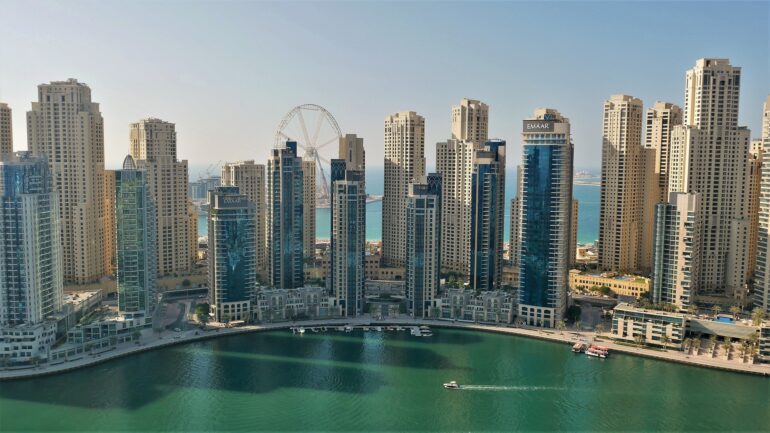TL;DR:
- Artificial intelligence (AI) research and adoption in the UAE will support economic diversification and generate economic and social value.
- AI solutions are projected to contribute around $13 trillion to the global GDP by 2030.
- The Mohamed bin Zayed University of Artificial Intelligence aims to attract students from around the world to advance AI technology and promote economic diversification in the UAE.
- The UAE was one of the first nations to recognize the potential of AI and implemented an AI strategy, UAE 2031, to enhance governance and transform key sectors.
- AI is considered the most important industry in the UAE for the next decade, according to a poll of technology and engineering employees.
- AI will contribute to the UAE’s net-zero strategic initiative by 2050 and drive advances in climate progress.
- The Minister of Industry and Advanced Technology, Dr. Sultan Al Jaber, discussed research projects at the university focusing on national priorities such as sustainable environment, infrastructure, healthcare, education, and large language models.
- A joint project between the university and IBM aims to use AI to identify urban areas in Abu Dhabi affected by excessive heat, informing climate and sustainability policies.
Main AI News:
Artificial intelligence (AI) research and implementation are poised to play a pivotal role in the United Arab Emirates (UAE) pursuit of economic diversification and the generation of substantial economic and social value, according to Dr. Sultan Al Jaber, Minister of Industry and Advanced Technology and President-designate of the Cop28 summit. Dr. Al Jaber, who also serves as the chairman of the Mohamed bin Zayed University of Artificial Intelligence, highlighted the significant contributions that AI solutions are expected to make, with projections indicating a potential $13 trillion boost to the global gross domestic product by 2030. Such advancements in AI hold the promise of optimizing industries of the future and positively transforming the lives of billions worldwide.
During his recent visit to the Mohamed bin Zayed University of Artificial Intelligence in Abu Dhabi, Dr. Al Jaber emphasized the pivotal role of AI in realizing the UAE’s economic diversification goals. The university, established in 2019 as the first of its kind, aims to attract talented students from across the globe who will pioneer advancements in AI technology, thereby propelling the nation’s economic diversification efforts.
The UAE, recognizing the potential of AI for its economy early on, launched its AI strategy, UAE 2031, in 2017. This visionary strategy outlines plans to leverage AI technology to enhance governance efficiency and highlights eight key sectors, including space, renewable energy, water, and education, that are earmarked for transformation. Furthermore, the UAE appointed the world’s first Minister of State for Artificial Intelligence, Omar Al Olama, demonstrating the nation’s commitment to spearheading AI advancements.
In a recent poll conducted by the UK-based Institution of Engineering and Technology, AI emerged as the UAE’s most critical industry for the coming decade. It surpassed other sectors such as construction, electronics, aerospace, robotics, design engineering, and IT and cybersecurity in terms of perceived importance. The potential impact of AI on the UAE’s net-zero strategic initiative by 2050 was also underscored by Dr. Al Jaber, who stressed that AI technologies developed today have the power to enhance energy efficiency, curb emissions, and promote sustainable economic growth while tackling climate change.
During his visit, Dr. Al Jaber engaged with researchers from the university and the Inception Institute of Artificial Intelligence to discuss research projects aligned with the UAE’s national priorities. These initiatives encompass a sustainable environment and infrastructure, world-class healthcare and education systems, and the exploration of large language models, particularly in Arabic. The university highlighted a joint project with IBM, aiming to deploy a data engine capable of identifying urban areas in Abu Dhabi affected by excessive heat, which can inform climate and sustainability policies.
The UAE’s steadfast commitment to AI research and adoption, exemplified by the Mohamed bin Zayed University of Artificial Intelligence and strategic initiatives like UAE 2031, positions the nation at the forefront of technological innovation. By leveraging the transformative power of AI, the UAE is poised to drive economic diversification, tackle climate change, and pave the way for a prosperous future.
Conlcusion:
The strong emphasis on artificial intelligence (AI) research and adoption in the United Arab Emirates (UAE) signifies significant opportunities for the market. The projected contribution of AI solutions to the global gross domestic product by 2030, along with the UAE’s focus on economic diversification, indicates the potential for substantial market growth. With AI positioned as the UAE’s most important industry, businesses operating in sectors such as construction, electronics, aerospace, robotics, design engineering, and IT and cybersecurity should consider the integration of AI technologies to stay competitive.
Moreover, AI’s role in supporting the UAE’s net-zero strategic initiative and climate progress presents market prospects for companies specializing in energy efficiency, emissions reduction, and sustainable practices. As AI research and advancements continue to flourish in the UAE, businesses should capitalize on these developments to drive innovation, improve efficiency, and secure a strong foothold in the evolving market landscape.

